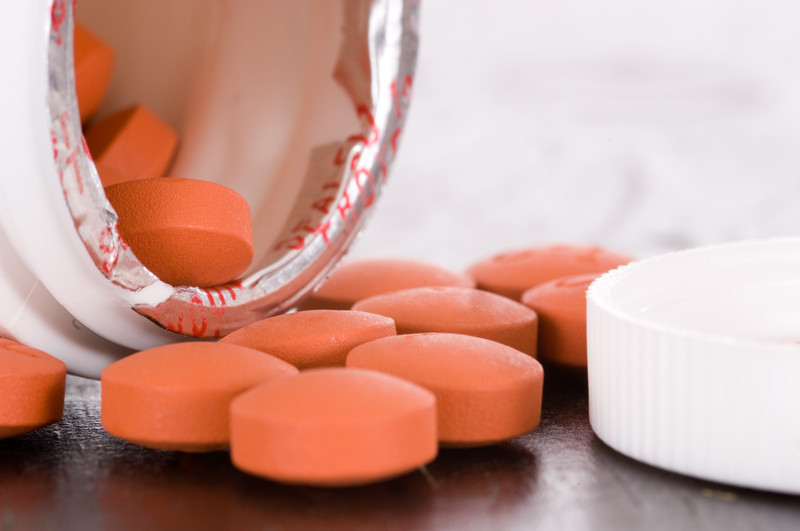
5 timeless habits for better health

What are the symptoms of prostate cancer?

Is your breakfast cereal healthy?

When pain signals an emergency: Symptoms you should never ignore

Does exercise give you energy?

Acupuncture for pain relief: How it works and what to expect

How to avoid jet lag: Tips for staying alert when you travel

Biofeedback therapy: How it works and how it can help relieve pain

Best vitamins and minerals for energy

Should you take probiotics with antibiotics?
Back Pain Archive
Articles
Need physical therapy? 3 key questions your PT will ask
The safe way to do yoga for back pain
The popular mind-body practice can be one of the best ways to soothe an aching low back, as long as you are careful.
Image: © FatCamera/Getty Images
Yoga is a gentle practice that is ideal for maintaining back strength and flexibility. It's also one of the more effective tools for helping reduce low back pain, the most common source of pain and disability among older adults.
"Yoga helps strengthen and stretch back muscles that might be tight, which improves mobility," says Dr. Lauren Elson, medical editor of the Harvard Special Health Report An Introduction to Yoga (www.health.harvard.edu/yo).
What type of mattress is best for people with low back pain?
Back pain is one of the top reasons that people begin to lose mobility in middle age. Pain can keep people from engaging in physical activity, making it more difficult for them to maintain a healthy weight and keep up their strength, stamina, and balance as they age. So treating and managing back pain that results from injuries or health problems is crucial for staying on the path of a healthy and active life.
Considering that most people spend roughly a third of their lives lying in bed, choosing the right mattress is essential for managing low back pain. It can make the difference in whether you can sleep at night and function the next day.
Try this move for better core strength
Strengthening your core using plank exercises can help ease back pain. The plank position is essentially the high part of a push-up. People who can't hold this position can try a modified version by bending their knees and resting them on the ground. Build strength by practicing holding a plank for as long as you can, and then progressively working to hold it for longer each time.
Are early detection and treatment always best?
The culture of American medicine has long believed and supported the idea that more early detection and treatment is best. But some testing is costly, invasive and carries needless risks, and some conditions go away on their own. Early detection and treatment can be lifesaving — just not for every health issue.
CBD for chronic pain: The science doesn’t match the marketing
CBD, a non-psychoactive component in cannabis, is emerging as a promising pharmaceutical agent to treat pain and other conditions. Unfortunately, few studies in humans have examined its effectiveness, and the cannabis industry’s profit motive is driving a wave of dubious claims about what CBD can do.
Will my herniated disc heal on its own?
Ask the doctors
Q. I have a herniated disc in my back. What does this mean, and will this heal on its own?
A. A herniated disc, also called a slipped or ruptured disc, is a common problem that can happen at any age, but becomes more common in middle age and beyond. It occurs when the jelly-like filling in a spinal disc — one of the pads between your vertebrae, or spinal bones — breaks through the disc's outer shell, called the annulus, and bulges through the tear. When this happens, the material may press on nearby nerves, which can cause a host of symptoms including inflammation, pain, and numbness. Where in your body you experience these symptoms depends on the location of the herniated disc. For example, if the disc is in your neck, you may feel pain down your shoulder and into your arm. If the disc is lower in your back, it may irritate your sciatic nerve, which can cause pain that radiates through your buttock and down your leg. The good news is that in most cases — 90% of the time — pain caused by a herniated disc will go away on its own within six months. Initially, your doctor will likely recommend that you take an over-the-counter pain reliever and limit activities that cause pain or discomfort. But in some cases, if you've been using these strategies and haven't noticed an improvement, your doctor may recommend further evaluation and possibly an additional treatment strategy, such as physical therapy. Surgery is typically not recommended unless the problem does not respond to therapy, if you are having an increasingly hard time moving, or if your doctor believes the spinal cord is being compressed.
Back pain: What you can expect from steroid injections
Try conservative measures first to control pain, and know the limits and risks of cortisone shots if you choose to try it.
Most people who suffer with back pain already know the drill: time heals this wound. Over weeks to months, the pain will calm down, and you will slowly return to your normal life. In the meantime, try to stay as active as possible and rely as much as possible on over-the-counter pain relievers to help avoid needing cortisone shots. Doctors call these shots corticosteroid injections.
But for some, these conservative measures may not relieve the agony soon enough—especially if the problem is back pain caused by irritated spinal nerves. After a few weeks, just getting to the bathroom may start to feel like Napoleon's winter march in Russia. At that point, you may be offered a cortisone injection to calm the war zone in your lower back.

5 timeless habits for better health

What are the symptoms of prostate cancer?

Is your breakfast cereal healthy?

When pain signals an emergency: Symptoms you should never ignore

Does exercise give you energy?

Acupuncture for pain relief: How it works and what to expect

How to avoid jet lag: Tips for staying alert when you travel

Biofeedback therapy: How it works and how it can help relieve pain

Best vitamins and minerals for energy

Should you take probiotics with antibiotics?
Free Healthbeat Signup
Get the latest in health news delivered to your inbox!
Sign Up











